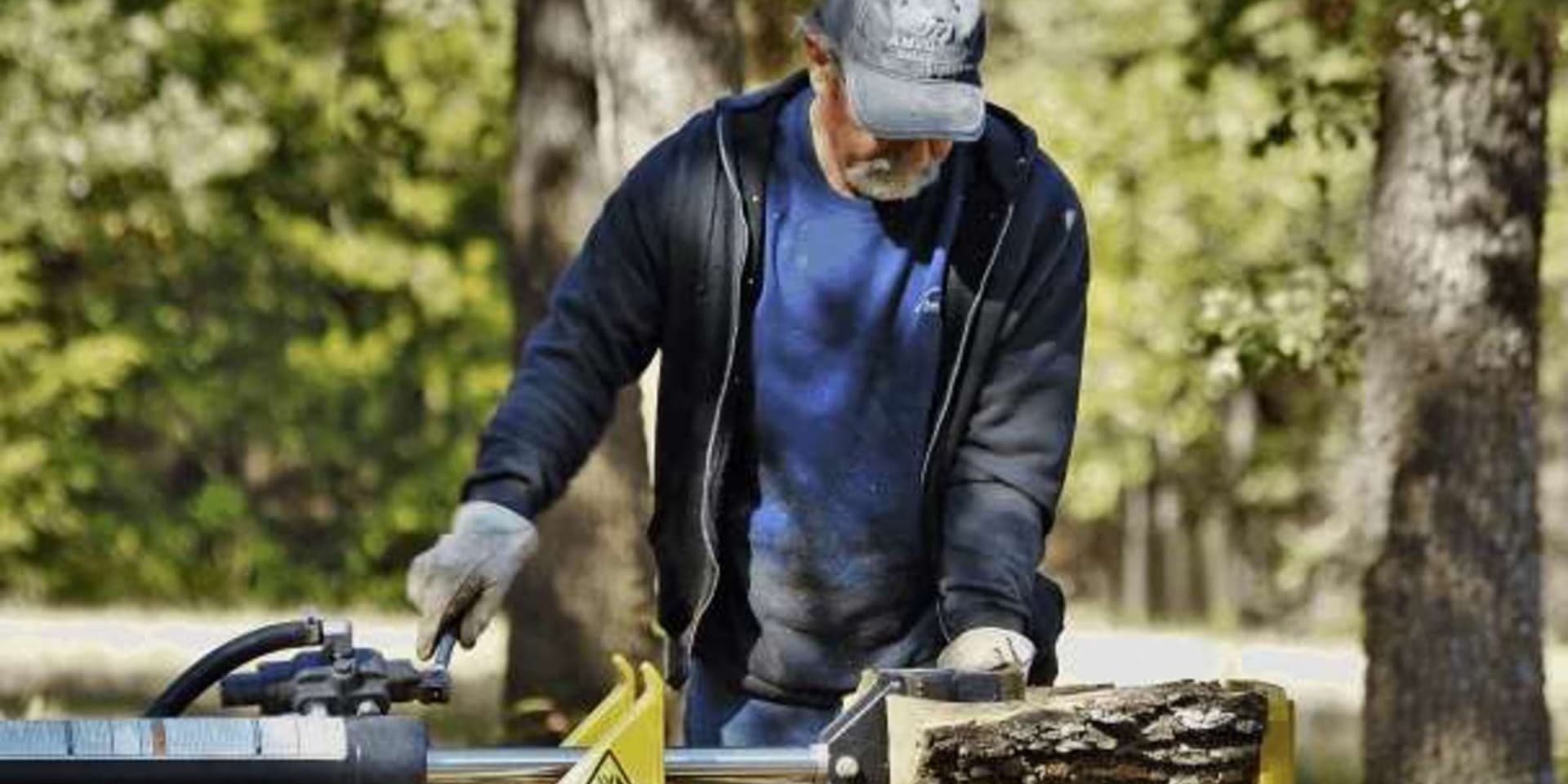Do You Have to Register a Log Splitter?
So you’ve decided to purchase your very own log splitter, then you’re very excited to use it to cut some logs for your firewood stockpiling. As you’re about to use your log splitter for the very first time, you suddenly thought, “Do I have to register my log splitter?” Do you really have to? Is it legal for you to tow your log splitter on public roads? Do you have to install plates on it?
Whether you’re a new owner or a long-time enthusiast of log splitter, this article will be of great use for you. There is a lot of confusion over this and finally, we’ll find out all the answers! Read on!

Table of Contents
Brief History of Log Splitters
Before we dive deeper into the legal side of log splitters, let us first have a glimpse of its history to understand them even more. For thousands of years, mankind has been relying on wood for a lot of things, starting a fire, building a house, a fence, and many other tools for hunting, fishing, and home improvements. Needless to say that as humans evolved through the years, their means of splitting wood also evolved.
Mankind has been able to develop tools and machines to improve and help cutting wood become easier and more efficient. However, It was not until 1967 when a patent was formally filed for a log splitter. A man named Clifford H. Snyder claimed that he was able to invent the wood-cutting machine that uses a general vertical blade that runs in a hydraulic system. He was accompanied by his attorney and a patent was formally awarded.
Are Log Splitters Legal to tow on public roads?
The safe answer? Yes. Although each state in America has its own set of laws regarding traffic and road obligations, a log splitter is not considered a vehicle. The trailer which you will be using to tow the log splitter is the one that needs to be registered and considered legal.
So, yes. You can legally tow your log splitters behind your trailer as long as your vehicle’s clean and legal, and you prioritize safety over anything else. Planning to transport your log splitter over to your grandpa’s barn? You definitely can do it!
What are some of the things I should do when towing?
Don’t worry! It’s perfectly normal if you’re worried that you’ll get a ticket for towing an unregistered log splitter behind your trailer. No matter what state you’re living in, here are some of the tips you should follow if you plan on towing your log splitter anytime soon:
Never tow your log splitter after dark
Yup! It would be better if you’re transporting your log splitter in the light of day. Aside from preventing unforeseen accidents, the police certainly won’t be bothered by your trip.
Do not Overspeed
NEVER OVERSPEED. Remember, it is imperative that we prioritize safety over anything. Don’t show off, don’t speed up. Schedule your trip during a time when you’re most likely free. Also, before going on a trip with your log splitter, consider checking the user manual for the manufacturer’s recommended speed limits. Most of the time, based on other log splitter owners, the speed limit is 45 mph. So as a general rule, never go beyond 45 mph.
Use the GPS
This is also one of the most important things to do. Use the GPS, figure out alternative routes as much as you can to avoid heavy traffic on main roads. Choose to drive on back roads instead, not only are you able to feel safer and free from all the noise, but you are also safer from being arrested by the police.
Watch the tires
Keep in mind that in most log splitter models, tires are labeled as “Not for highway use.” You should always keep this in mind because it may cause serious accidents in the future if not observed.
Use a trailer
A lot of log splitter owners recommend that you should use a trailer for transporting your log splitter. It is more convenient, safer, and a lot quicker!
So, Do You Have to Register your Log Splitter?
NO. You don’t have to. Feel free to use your log splitters conveniently at home. Now, Depending on the state you’re living in, consider transporting your log splitter by towing it from a trailer that’s supposed to be registered legally to prevent complications.
Conclusion
There are a lot of advantageous reasons to know the ins and outs of log splitters, for one you can help your family, friends, and colleagues with their work if they have a problem. Moreover, having basic knowledge about the legal concerns of your log splitter is also very helpful for you and everyone that might be interested in owning their first-ever log splitter.


